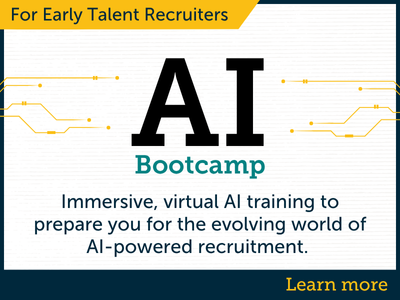For more than a decade, select technology companies have been actively pursuing autistic individuals who have computer science and related disciplinary degrees for job openings in software development, debugging code in software, and related jobs in cybersecurity.
“The original interest stemmed from a recognition that certain autistic individuals had a unique set of characteristics that made them particularly well-suited to these jobs because of a heightened ability to see patterns in code and data, an ability to hyperfocus, and great attention to detail more generally,” explains Susanne Marie Bruyère, Ph.D., professor of disability studies and academic director of the Yang-Tan Institute on Employment and Disability at Cornell University.
“Over time, these companies have realized that many autistic individuals have many other skills, although perhaps not the original ones that autistic individuals were being recruited for.”
This realization has led the companies to broaden their affirmative recruitment of autistic and neurodivergent individuals for many more types of positions. (An example of the growing number of employers that have become interested in and are actively pursuing neurodivergent job candidates for open positions can be found on the Disability:IN Neurodiversity@Work Employer Roundtable’s website.)
2025 HBCU and Inclusion Summit
February 19-20, 2025 (Virtual)All are welcome to join us for NACE’s 2025 HBCU & Inclusion Summit, where we’ll unite professionals from industry employers, HBCUs, and other higher education institutions to share data, strategies, and tactics for recruiting and supporting various student populations.
Register here
Jim Saulsbury, university relations, early talent program manager for ABB, says that the value that employees with autism bring to their employers and industries should not be narrowed.
“They are individuals, and to broadly say that this group brings a specific value is difficult because one person with that background can bring something totally different then somebody else,” Saulsbury points out.
“For example, a lot of people say that those with autism are very analytical and do well with organization, and there’s some truth to that. However, that could be very limiting as they bring a wide variety of skills and strengths to the STEM fields.”
Companies also risk limiting opportunities for job seekers with autism simply because of the barriers present in their recruiting and hiring processes. Chief among these, Saulsbury says, is a conventional hiring process that is focused on personality and “cultural fit.”
“What does that mean?” he asks. “That means ‘Do I like you? Do I connect with you on a personal level?’ This performative communication is often not a strength of those in the autism community and has very little correlation to whether that person is going to perform well in a technical role within STEM. We're evaluating a person by how they make us feel personally as opposed to evaluating the talent. Unfortunately, this is a big part of how we hire in the United States.”
Dr. Bruyère notes that many other factors can become barriers for neurodivergent individuals, including those who identify at autistic, during the recruitment and hiring processes. Some of these obstacles include:
- The way that open position recruiting is being done on the company website and career pages;
- How job openings and needed job skills and prior experience are presented, which might needlessly discourage autistic individuals who are qualified for the positions; and
- Algorithmic screening tools that might screen out candidates who might not list all their related experience or check the box on all software systems that are being presented as required.
“Even when these neurodivergent candidates do choose to apply and make it through the screening process to the interview, the interview itself can be very problematic for people to get through,” Dr. Bruyère adds.
Katie Brendli Brown, Ph.D., research and evaluation associate with the Yang-Tan Institute on Employment and Disability at Cornell, agrees, noting that neurodivergent job seekers are often expected to adhere to neurotypical approaches to how they present themselves and communicate during the interview.
Interviewing Neurodivergent Candidates
There are steps hiring organizations can take to ensure their interviews are more accommodating for neurodivergent job seekers. According to Dr. Brendli Brown and Dr. Bruyère, these include:
- Sending questions in advance of the interview, which may allow for additional processing time;
- Modifying interview protocols to remove any open-ended, vague questions as well as hypothetical questions that may be difficult for neurodivergent, including autistic, interviewees to answer;
- Providing training to give company recruiting personnel the skills to more effectively and inclusively screen individuals and deal more neuro-inclusively in the interview process. This might also mean making questions more directly focused on job skills or allowing individuals to demonstrate skills rather than having to discuss or describe them in the interview process.
- Adopting 1:1 interview arrangements rather than holding interview panels with a single candidate to help reduce interview anxiety;
- Holding the interview in a space that minimizes distractions, background noise, and sensory overload (considering overhead lighting, odors, and more);
- Allowing for closed captioning and other necessary accessibility features if the interview is held virtually. Turning on cameras could also be considered optional, rather than mandatory, for a virtual interview;
- Offering multiple ways for candidates to respond to interview questions, such as giving the option to provide written responses, which would be a particularly useful option for nonverbal autistic job candidates; and
- Scheduling breaks into longer interviews.
Supporting Autistic Job Seekers
Career services professionals can play a prominent role in supporting autistic job seekers in their job search, for instance, by helping them to request interview questions or other accommodations in advance of an interview, engaging in mock interview conversations, and more. Furthermore, they can provide helpful information on neurodiversity to hiring organizations.
“More generally, it may be advantageous for hiring organizations to require neurodivergent awareness or related trainings among their hiring professionals to give them a better understanding of the unique needs of neurodivergent job candidates,” Dr. Brendli Brown says.
“Participation in such a training could be mandatory for hiring managers prior to interviewing neurodivergent job candidates, or could be part of a reoccurring, required training for all employers/employees.”
Dr. Brendli Brown and Dr. Bruyère note that employers can also make it known that their workplaces are inclusive for neurodivergent and autistic job candidates by:
- Reviewing their websites to see if it sends a positive message about wanting neurodivergent and autistic individuals in their workforce and workplace. This can be done by having a unique portal for an affirmative hiring program for this target population, as well as messaging around related initiatives.
- Assuring selection and opportunities to interview by raising awareness among recruiters and hiring managers that there is a strategic company initiative for affirmatively recruiting individuals who are neurodivergent.
In terms of retaining autistic employees, Saulsbury says: “The studies I’ve seen on retention efforts with this population suggest that it doesn't take much to retain them as they tend to have longer tenure [than neurotypical employees].”
One key for retention is offering flexibility. For example, Saulsbury explains that autistic individuals often have different sleep schedules and are at their best and are affected more at different times of day.
“With this population, time of day and sleep cycle are more important,” Saulsbury notes.
“If the role allows them to work until 8 p.m. and that's when they perform best, that accommodation would be an important part of their retention.”
This optimal recruiting, hiring, and retention is all part of the ultimate goal for employers: to bring in talent that's going to perform the job to the best of their ability and provide maximum value to the organization. This includes providing opportunities for neurodivergent and autistic students, which may require a “remodeling” of processes and approaches.
“We have our hiring front door for our traditional hires and then we have a hiring side door that we use to bring in students—including those in the autistic population—through specific programs. We need to work on making a larger front door where you don't have to be a personality match to get a job and, instead, hiring is based on abilities and accomplishments,” Saulsbury says.
“Widening that front door by better educating hiring managers so they understand how the hiring process might look different and adjusting their criteria on how they evaluate candidates is job number one if we truly want to help this population but also help hiring organizations maximize the talent—all of the talent—that they're recruiting and hiring.”
Resources for Those Working With and Recruiting Autistic Students
- NACE’s STEM affinity group, which holds discussions and offers resources related to STEM employment.
- Mentra, an organization that may be helpful for neurodivergent job seekers.
- Project ATTAIN provides resources on transition predictors and effective practices for autistic youth.
- The Employer Assistance and Resource Network on Disability Inclusion (EARN) provides several strategies for hiring organizations on how to effectively recruit, hire, and retain workers with disabilities. This resource includes multiple self-paced trainings on topics like talent acquisition and retention processes, as well as inclusive business cultures. It also has a targeted set of informational resources focused on the topic of neurodiversity hiring.
Katherine Brendli Brown, Ph.D., and Susanne Marie Bruyère, Ph.D., will be featured in a session titled “Autistic STEM Job Seeker Experiences” during NACE’s 2025 HBCU & Inclusion Summit.






